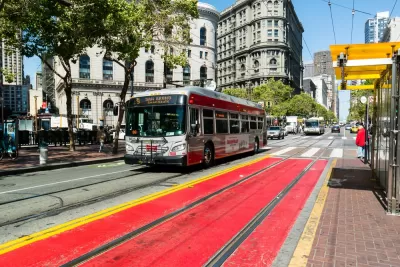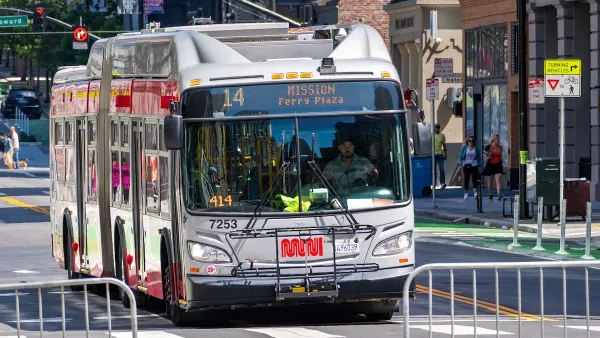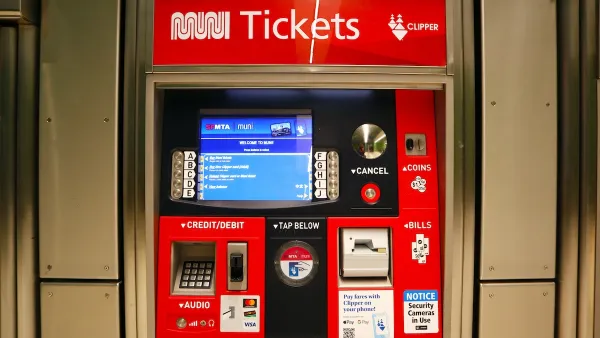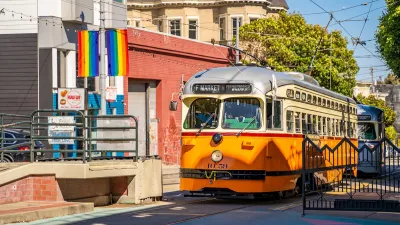Though San Francisco residents are more likely than residents of other cities to ride transit and avoid driving, the buses they ride on are unreliable.

San Francisco graded its transit service against a group of peer cities, and the results were...not great. While San Franciscans are more likely to ride transit than their counterparts in cities like Chicago or Denver, if they're on the bus, they are riding the slowest buses in the group. "Overall, a Muni bus averages just 8.2 miles per hour, the worst score in the grouping. Second-to-last-place Chicago beats Muni by more than a full mile at 9.3," Adam Brinklow writes for Curbed San Francisco.
San Francisco's buses are also the least reliable. The prevalence of mechanical issues on San Francisco buses is part of the reason these buses are so slow.
FULL STORY: Muni buses slower, more prone to malfunction than almost any other city

Planetizen Federal Action Tracker
A weekly monitor of how Trump’s orders and actions are impacting planners and planning in America.

Chicago’s Ghost Rails
Just beneath the surface of the modern city lie the remnants of its expansive early 20th-century streetcar system.

San Antonio and Austin are Fusing Into one Massive Megaregion
The region spanning the two central Texas cities is growing fast, posing challenges for local infrastructure and water supplies.

Since Zion's Shuttles Went Electric “The Smog is Gone”
Visitors to Zion National Park can enjoy the canyon via the nation’s first fully electric park shuttle system.

Trump Distributing DOT Safety Funds at 1/10 Rate of Biden
Funds for Safe Streets and other transportation safety and equity programs are being held up by administrative reviews and conflicts with the Trump administration’s priorities.

German Cities Subsidize Taxis for Women Amid Wave of Violence
Free or low-cost taxi rides can help women navigate cities more safely, but critics say the programs don't address the root causes of violence against women.
Urban Design for Planners 1: Software Tools
This six-course series explores essential urban design concepts using open source software and equips planners with the tools they need to participate fully in the urban design process.
Planning for Universal Design
Learn the tools for implementing Universal Design in planning regulations.
planning NEXT
Appalachian Highlands Housing Partners
Mpact (founded as Rail~Volution)
City of Camden Redevelopment Agency
City of Astoria
City of Portland
City of Laramie





























